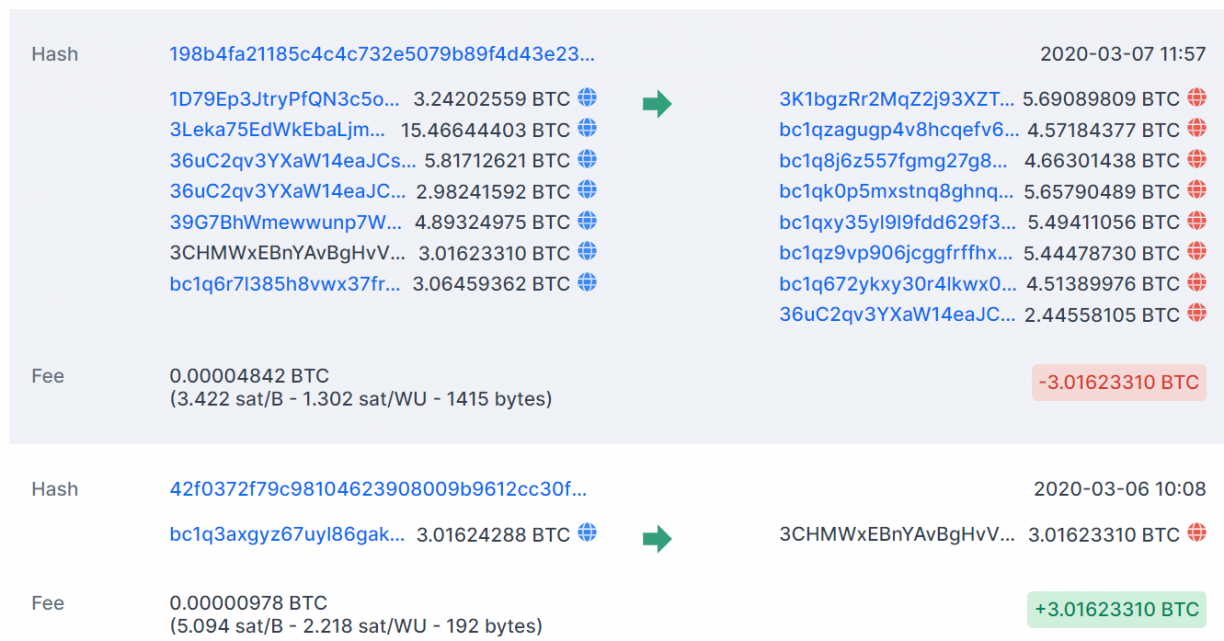Bitcoin Sell-off Might be Linked Two of the Largest Scams in its History

Bitcoin and crypto-markets are teetering from a massive sell, this close to halving. The markets were looking fairly bullish early in February. However, things seems to have to taken an ugly turn too fast.
In the midst of bullish fundamentals, one of the reasons that this can be attributed to is the selling pressure from scams. According to an independent research, PlusToken Scam coins are on the move again, while the rate of distribution is slower than last year, the sell-off is still significant.
~13k in new PlusToken mixer deposits in last 24 hrs.
Almost all previous mixer deposit change has entered mixing, confirming my theory.
Distributions still on/off. Much slower than September and November.
New report and full sit rep imminent. pic.twitter.com/vwrBuVk272
— Ergo ∴TxIDs Or It Didn't Happen∴ (@ErgoBTC) March 6, 2020
PlusToken Scammers Mark High?
As reported earlier on CoinGape, on 11th February, about 20,000 Bitcoins were moved to one large address which was further distributed to smaller accounts.
The next movement in the smaller BTC addresses was witnessed on 17th February. Post which, the final transactions on those addresses were logged on 6th and 7th March 2019.

In total, about 187,000 Bitcoins and other cryptocurrencies like ETH were siphoned in the scam. In the latter half of 2018 (since August), this can created a lot of selling pressure in the market.
This is around the same time when Ergo reports Bitcoins being sent to a mixer. Moreover, on 3rd March 2020, $100 million dollar in Ethereum was also moved across the blockchain. Hence, it seems quite evident that the scammers are unloading onto the market.
Ghosts of the Past: Mt. Gox
Furthermore, the Mt. Gox settlement is also nearing its end. The trustees and the creditors are currently liable to about 141,000 BTC that was left from the 850,000 BTC hack. Leading on-chain analyst, David Puell had warned of a possible sell-off in March due to this.
According to recent reports, a settlement of about 88% in USD value has been proposed to the victims of the hack by the Trustees of the Japanese defunct exchange. NY based Fortress Investment Group is willing to stake claims on all the 141k BTC by paying out the investors.
Fortress claims to make the payout to the investors after acceptance in 3 days.This could create a log of selling pressure in the market, on acceptance and announcement of reimbursement dates.
Nevertheless, the total amount of Bitcoins are further entangled in another lawsuit with CoinLab and Tibanne, who claim major portions as well.
Do you think that scams and sell-offs will throw Bitcoin into another long-term bear market? Please share your views with us.
- Will Bitcoin Crash Again as ‘Trump Insider’ Whale Dumps 6,599 BTC
- XRP News: Ripple’s RLUSD Gets Boost as CFTC Expands Approved Tokenized Collateral
- Crypto Markets Brace as Another Partial U.S. Government Shutdown Looms Next Week
- $40B Bitcoin Airdrop Error: Bithumb to Reimburse Customer Losses After BTC Crash To $55k
- ETH Price Fears Major Crash As Trend Research Deposits $1.8B Ethereum to Binance
- Cardano Price Prediction as Midnight Token Soars 15%
- Bitcoin and XRP Price Outlook Ahead of Crypto Market Bill Nearing Key Phase on Feb 10th
- Bitcoin Price Prediction as Funding Rate Tumbles Ahead of $2.1B Options Expiry
- Ethereum Price Outlook as Vitalik Buterin Sells $14 Million Worth of ETH: What’s Next for Ether?
- Solana Price at Risk of Crashing Below $50 as Crypto Fear and Greed Index Plunges to 5
- Pi Network Price Prediction Ahead of PI KYC Validator Reward System Launch














